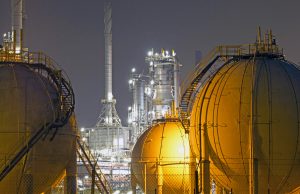Casten questions exporting liquified natural gas
Chronicle Media — December 18, 2024
U.S. Congressman Sean Casten, D-Downers Grove, questioned the continued exporting of liquified natural gas in light of a Department of Energy’s assessment of U.S. liquified natural gas.
The Energy Department’s report showed the United States is now the largest exporter of liquified natural gas in the world.
“(The) report from the Department of Energy proves what we already knew – when we export liquified natural gas, energy costs rise, emissions increase, and fossil fuel companies rake in profits at Americans’ expense,” Casten said. “It is not in the national interest to raise prices on American consumers, undermine global markets for clean energy, increase global warming, and damage the health of communities along the way.
“The question before us now is whether the incoming Trump administration will uphold the national interest and prioritize American energy consumers or cave to the interests of energy producers.”
In 2023, Casten joined U.S. Rep. Jared Huffman in urging the Biden administration to pause the approval of new LNG export terminals until it updated the process for determining whether new LNG licenses are in the public interest. President Biden announced the pause in January, and DOE began to update its process immediately, with the result being Tuesday’s study.
Casten introduced, in September, the Exported Carbon Emissions Report Act, legislation to require the Environmental Protection Agency to regularly publish a summary of the total emissions of carbon dioxide and methane related to United States fossil fuel exports. The bill is intended to give Americans a complete picture of the U.S. global carbon footprint, now that a large part of that footprint is the result of U.S. fossil fuel exports.
In November, Casten introduced the LNG Public Interest Determination Act of 2024, legislation to require the Department of Energy to examine impacts on climate stability, consumer energy costs, and environmental justice when considering permits for new LNG export terminals – the same questions examined by Tuesday’s DOE study.






